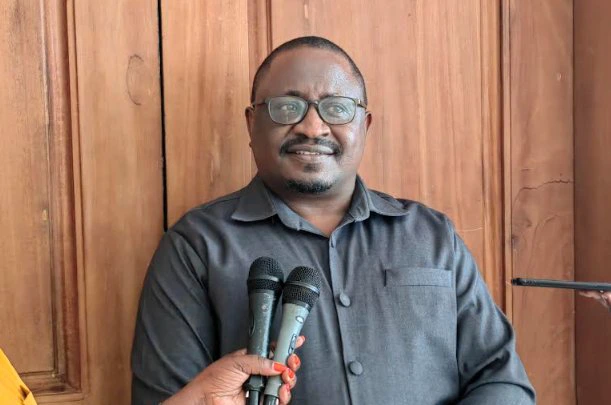MAAIF’s US$354M Project to Mitigate Climate Change Effects on Agricultural Sector

The Ministry of Agriculture, Animal Industry and Fisheries (MAAIF) is implementing a 6-year project aimed at mitigating the effects of climate change on Uganda’s agricultural sector.
Titled the Uganda Climate Smart Agricultural Transformation Project, the program aims to increase productivity, market access, and resilience of select value chains in the project area and to respond promptly and effectively to an eligible crisis or emergency.
The USD 354 million dollar project was approved by the World Bank in December 2022 and subsequently received Cabinet approval in 2023. The project was also approved by parliament in 2024 and became effective in June 2024.
Of the USD 354 million, USD 350 million is external funding from the World Bank, with USD 25 million as a grant, while the government of Uganda is injecting USD 4.7 million.
The project covers 69 districts, of which seven are refugee-hosting districts.
The project covers four value chains, including crops: coffee, cocoa, mango, citrus, hass avocado, cashew nuts, cassava, soybeans, sorghum, and maize; livestock: dairy and beef; fisheries: fish capture and aquaculture; and beneficial insects: bees and black soldier flies.
The project targets to reach 760,000 households, impacting 3.9 million direct and 9.5 million indirect beneficiaries.
The project deputy coordinator, Alex Asiimwe, explained that the model of delivery of the project is through matching grants for the farmers.
“They (farmers) will be paying 20%, and then the ministry tops up with 80%, but we are also investing in infrastructure under NARO, NAGRIC, and under the department of meteorology,” he said.
However, in the refugee-hosting districts, farmers will receive complete funding as grants.
The other investment that the project covers is investment into the environment to increase tree planting and wetland restoration.
“We are trying to increase the carbon sink because the project is about climate-smart aquaculture. We are trying to make sure that we increase the carbon sink because studies have shown that 30% of the carbon change effects of greenhouse gases are contributed by agriculture. So we want to make sure that we mitigate that effect, and we are also going to invest in livestock that are climate-smart, especially Friesians, because Friesians are known to reduce the methane gases that are also causing climate change.”
To benefit from the project, a farmer must be in a farmer group or cooperative.
“The mode of delivery is that you, as a farmer, must be part of a farmer group to access these inputs.”
Asiimwe called on all farmers to join cooperatives or farmer groups to benefit from the project.
The project covers 13 subregions of Uganda, including Lango, Ankore, West Nile, Bukedi, and Karamoja, among others.
The criteria used to select districts benefiting from the project include the environmental and the poverty issues.
“In the selection of the districts, we were looking at those areas that are affected by rainfall and poverty,” Asiimwe said.
The project comes at a time when Uganda, which boasts of holding the biggest percentage of East Africa’s arable land, is suffering hunger and food insecurity.
The recently released 2024 National Population and Housing Census by Uganda Bureau of Statistics (UBOS) revealed a serious food crisis in various parts of the country. The report highlighted that the sub-regions of Karamoja, Bukedi, Teso, Lango, and Elgon have the highest percentage of households suffering from extreme food insecurity.
In Karamoja, six out of every ten households are severely food insecure, with only 19% of households considered food secure. The report further shows that 63% of households in Karamoja are experiencing severe food insecurity, followed by Teso and Bukedi at 50% and West Nile at 48%.
Other affected areas include Lango (41%), Elgon (39%), Busoga (34%), Acholi (29%), Kigezi (25%), Bunyoro (24%), Tooro (24%), Buganda (21%), and Ankole (18%).
The Assistant Commissioner for Agricultural Extension Coordination at the Ministry of Agriculture, Animal Industry, and Fisheries, Dr. Patience Rwamigisa, said that the project is the biggest to be implemented by his ministry, adding that all stakeholders must ensure its success.
“This project is one of the biggest projects the Ministry of Agriculture has had. We have been having projects of [USD] 40 million, [USD] 50 million, and USD 100 million. The biggest was USD 150 million. Two of them were NAADS and the Agriculture Cluster Development Project. The others have not exceeded USD 150 million. But this is a project of USD 354 million. Therefore, we have had enough experience on these other projects we have implemented, and there is no reason why we should not make this project a success. This is one of the first projects that is implemented across the entire ministry; it’s not leaving anybody behind. And two, it is addressing most of the important agricultural trades, and we want it to be focused so we have an impact,” he said.



0 Comments